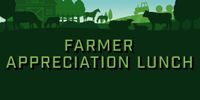Research out of the University of Alberta shows faba beans pack a high protein punch opening the potential for use as an alternative to meat and dairy options.
Brasathe Jeganathan conducted the work to earn a PhD in food science and technology from the Faculty of Agricultural, Life & Environmental Sciences.
She says the chemical-free method uses less energy, making the process more sustainable, called dry and wet fractionation, the separation methods are crucial in eventually making the bean more of a worldwide 'dietary staple'.
"By 2050 we are expected to feed 9.7 billion people, with demand expected to double for animal-based protein, but we can’t completely rely on that as a sustainable source in the long run. Alternative plant sources such as faba beans have lower environmental footprints and can, at the same time, provide adequate protein."
Jeganathan points out that the new process also ensures that the protein remains unchanged by chemicals, preserving its potential for use in developing clean-label vegetarian food products or supplementing cereal-based staple foods.
"Faba beans, also known as fava beans or broad beans, contain 22 to 36 per cent protein, a benefit that could make them a viable, secure food source for a growing global population."
More information on her research can be found here.

















